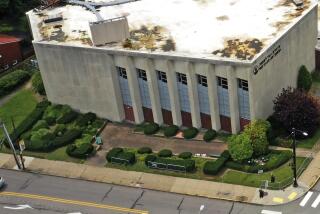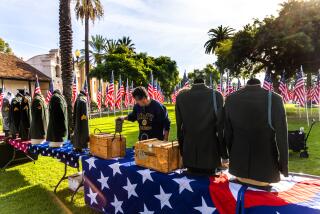Artifacts continue the 9/11 narrative in a new book
On the morning of Sept. 11, 2001, firefighters from Engine 54, Ladder 4 and Battalion 9 responded to the call that the World Trade Center had been attacked. None survived.
In the following days, a 10 1/2-foot Statue of Liberty replica was mysteriously placed among the flowers and items of commemoration around the firehouse on 8th Avenue and 49th street. Soon Lady Liberty was covered in hundreds of memorial tokens including origami cranes, flags and badges from around the world, children’s drawings and photos of the fallen.
This memorable image is just one of 28 artifacts drawn from the extensive collection of the National September 11 Memorial & Museum and featured in the book “The Stories They Tell” (Skira Rizzoli). “The objects in the book are a small preview of what the museum visit will be like,” said Clifford Chanin, director of education and public programs at the memorial and museum, a nonprofit foundation. “Whether it’s a steel beam or recovered wallet, the items reveal their origins and placement in the 9/11 narrative.”
PHOTOS: 9/11 and its aftermath on film
In the last few years family members, friends and survivors have donated thousands of documents, personal items, photos and memorabilia, including the only known photo of the crash of Flight 93 in a Pennsylvania field and the helmet of firefighter Mickey Kross who astonishingly survived in the collapse of the 110-story North Tower.
Linking three Americans across the globe, “Karyn’s Wing” is a unique tribute to flight attendant Sara Low, who perished in American Airlines flight 11. Co-worker and former roommate Karyn Ramsey donated her service pin to Sara’s dad ; the pin eventually made its way to Sgt. Mark Baker in Afghanistan, who wore the wings in some 20 combat missions.
A timeline highlights architectural elements. These include two remaining steel tree-like tridents, which stood upright among the rubble of the Twin Towers, metal fragments from the 1993 bombing and remnants from the plane that hit the Pentagon. Personal effects and transcripts from office workers, passengers and responders and the remembrances honoring the nearly 3,000 people killed in the attacks are other items featured.
PHOTOS: Arts and culture in pictures by The Times
Most of the spacious museum, which is scheduled to open in the spring, is situated seven stories below Memorial Plaza, in the bedrock level, the foundation of the World Trade Center site.
A 60-foot segment of the original slurry wall has been incorporated into the design. Built in the 1960s, the retaining wall was a vital structure holding back the Hudson River. It remained standing despite the destruction of the towers and is now preserved as a symbol of resilience.
“We did have a challenge in our storytelling to maintain a level of privacy and dignity of the people who had been killed,” said Chanin.
He mentioned one especially moving private communication: the transcript of the farewell recording from 38-year-old Defense Department contractor Brian Sweeney, who was aboard hijacked flight 175, which was flown into the South Tower. “I still get chills when I come to the last line.”
Evidently aware of his fate, the former Navy pilot leaves endearing and imparting words to his wife and family:
“I just want you to know I absolutely love you…go have good times, same to my parents and everybody… I hope I call you.”
More to Read
The biggest entertainment stories
Get our big stories about Hollywood, film, television, music, arts, culture and more right in your inbox as soon as they publish.
You may occasionally receive promotional content from the Los Angeles Times.










